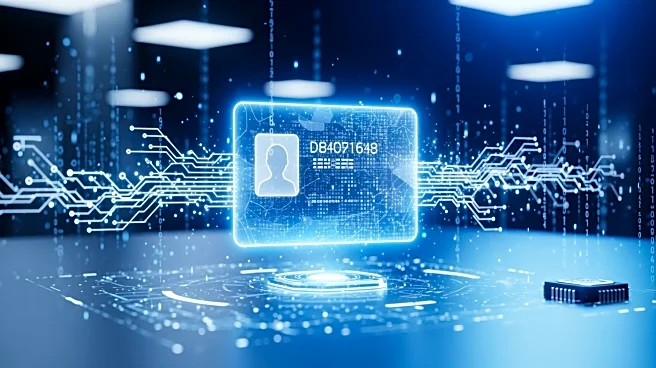What's Happening?
The introduction of digital ID cards is being considered by governments worldwide, including the UK, as a means to streamline access to services and reduce fraud. These digital IDs, stored on smartphones, are intended to replace traditional physical identification
cards. However, concerns have been raised about the potential for 'usage creep,' where digital IDs could be used for more invasive purposes than initially intended. Additionally, the risk of hacking and unauthorized access to sensitive personal data is a significant concern. Security experts have warned that digital IDs could be exploited by malicious actors, leading to privacy breaches and surveillance issues.
Why It's Important?
The shift towards digital ID cards represents a significant change in how personal identification is managed, with implications for privacy and security. While digital IDs offer convenience and efficiency, they also pose risks of data breaches and unauthorized surveillance. The potential for governments to use digital IDs for invasive tracking and data collection raises ethical and legal concerns. Citizens may face increased vulnerability to identity theft and loss of privacy. The debate over digital IDs highlights the need for robust security measures and regulations to protect personal data and prevent misuse.
What's Next?
As governments consider implementing digital ID systems, ongoing discussions about privacy protections and security measures are expected. Stakeholders, including privacy advocates and technology experts, will likely push for stringent regulations to safeguard personal data. The development of secure technologies and protocols to prevent hacking and unauthorized access will be crucial. Public awareness campaigns may be necessary to inform citizens about the implications of digital IDs and their rights regarding data privacy. The evolution of digital ID systems will require careful balancing of convenience and security.
Beyond the Headlines
The introduction of digital ID cards could lead to broader societal changes, including shifts in how identity and privacy are perceived. The potential for increased government surveillance and data collection raises ethical questions about individual freedoms and autonomy. Long-term implications may include changes in legal frameworks governing data privacy and the role of technology in personal identification. The debate over digital IDs may also influence public trust in government and technology companies, impacting future policy decisions.















